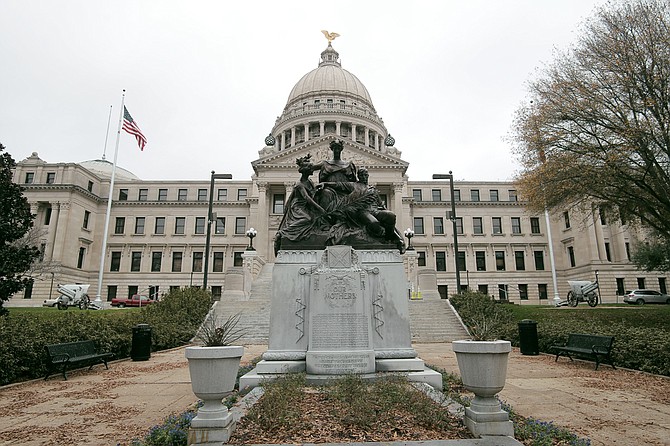In the debates over budget cuts this session, lawmakers did not voluntarily share the number of jobs potentially lost due to cuts—unless pressed to share those numbers. Photo by Imani Khayyam.
Republicans made good on their promise to slash state government funding in the 2017 legislative session, including public health and (parts of) public education.
The state's mental-health department took a $10-million cut, despite Mississippi litigating two legal challenges to its institutionalized system of mental-health care for children and adults. The state Department of Health is looking at an almost 50-percent reduction in funding. Lawmakers voted to cut the Mississippi Adequate Education Program by $20 million (versus last year's funding—it is still drastically underfunded in general), instead rewarding the state's best schools (which are largely in more affluent, Republican-run districts) instead of giving additional funds to the "failing" ones.
For the most part, Republicans are not apologizing for their "small government" priorities to legislating, even if it means health needs and equitable education suffer. Shrinking the size of government as a philosophy, however, has another natural outcome: the loss of vital jobs.
In the debates over budget cuts this session, lawmakers did not voluntarily share the number of jobs potentially lost due to cuts—unless pressed to share those numbers. Why? Because Mississippians who work for the state live in every county, pay taxes—and vote. The Department of Mental Health cut means hundreds of lost jobs. Cuts to other agencies likely mean the same.
Lost jobs means the newly unemployed need to find jobs elsewhere, presumably in the private sector, but in Mississippi this isn't the trend. Local, state and federal government is the second-highest nonfarm employer in the state of Mississippi, behind services (which includes business, food, health care and education), data from the state's university research center show.
State government alone employs 61,000 Mississippians, the latest "Mississippi's Business" report shows. That is more jobs than the entire construction industry in the state.
Democrats called for the repeal of the Taxpayer Pay Raise Act this session to stop the bleeding of state revenue, but the cries fell on deaf Republican ears. Lt. Gov. Tate Reeves still boasts of the legislation, passed in 2016, as the biggest tax cut in Mississippi history. The cut, he believes, will stimulate more economic activity and growth in the state's economy as well as attract large corporations.
How long will Mississippians have to wait to see if this actually comes to pass? Lawmakers passed a massive tax break for a mere 2,500 jobs guaranteed by Continental Tire last year too. The catch? Those jobs won't all materialize until 2025—if the German corporation sticks around that long.
No matter which way you slice it, the policies coming out of the statehouse mean a stretch of unemployment for hundreds, and eventually thousands, of Mississippians working in state government. It is unclear how long those workers will have to wait for tax cuts to turn into new jobs, if they do. Or will the 2019 election be their only opportunity to vote in favor of better job security?
More like this story
More stories by this author
- EDITORIAL: Gov. Reeves Needs to Take ‘Essential’ Seriously for COVID-19 Social Distancing
- EDITORIAL: City Needs to Name Officers Who Shot Citizens Without Delay
- EDITORIAL: Free Press Is Not Here to Comfort the Powerful; We're Here for Truth
- EDITORIAL: Dear Mississippi Politicians, Criminal Justice Reform Is More Than Rhetoric
- EDITORIAL: Transparency in Officer Shootings Needs to Improve, Not Worsen


